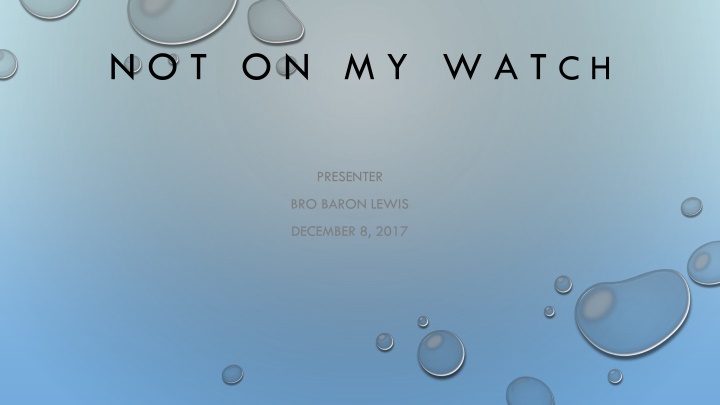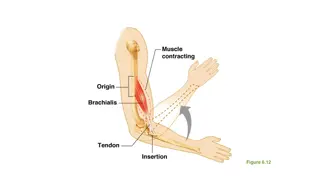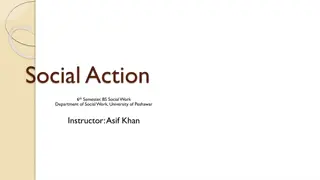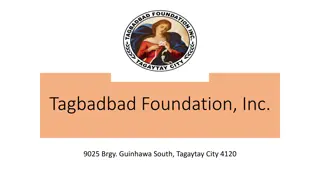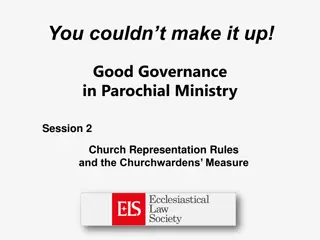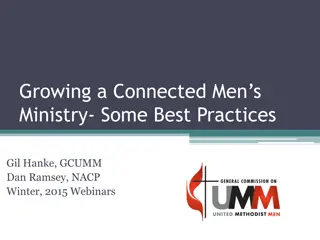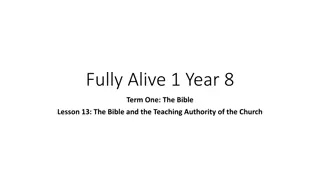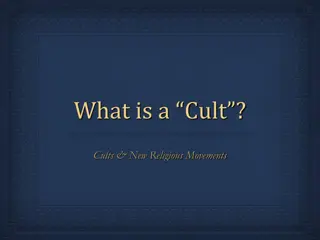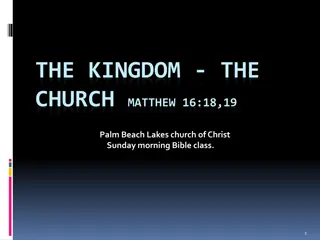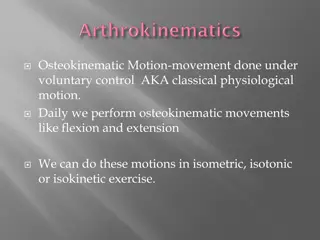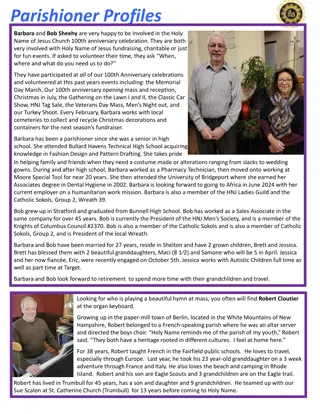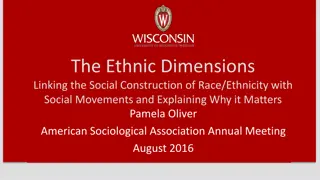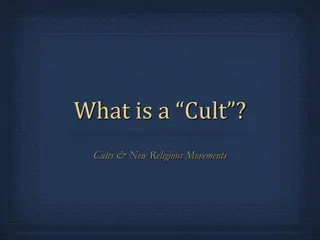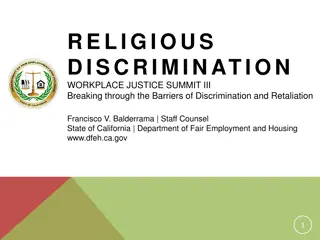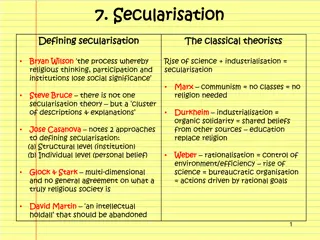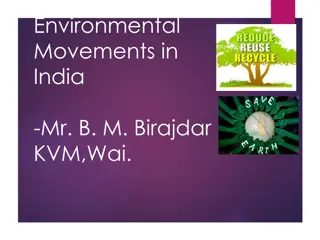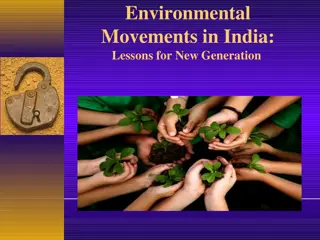Church History and Religious Movements
Dive into church history, from the early days of Christianity to the Renaissance period and beyond. Learn about key figures like Peter Waldo, John Huss, and John Wycliffe who paved the way for the Reformation. Explore the evolution of religious beliefs, the rise and fall of empires, and the impact of different denominations throughout history.
Download Presentation

Please find below an Image/Link to download the presentation.
The content on the website is provided AS IS for your information and personal use only. It may not be sold, licensed, or shared on other websites without obtaining consent from the author.If you encounter any issues during the download, it is possible that the publisher has removed the file from their server.
You are allowed to download the files provided on this website for personal or commercial use, subject to the condition that they are used lawfully. All files are the property of their respective owners.
The content on the website is provided AS IS for your information and personal use only. It may not be sold, licensed, or shared on other websites without obtaining consent from the author.
E N D
Presentation Transcript
N O T O N M Y W A T C H PRESENTER BRO BARON LEWIS DECEMBER 8, 2017
A P O S T A S Y THE RENAISSANCE PERIOD
APOSTASY COMES FROM THE GREEK WORD APOSTASIA (" ") MEANING DESCRIBED AS DEFECTION A WILLFUL FALLING AWAY FROM DEPARTURE REBELLION AGAINST CHRISTIANITY REVOLT/REBELLION
CHURCH HISTORY CHRISTIANITY * 312 A.D. - Official Religion * Constantine fought the battle of Milvian Bridge and defeated Maxentius NICENE CREED * 325 A.D. FIRST OF IT S KIND * This was one of the most critical times in church history at the Nicene Council. This was the first religious creed. DARK AGES * 375-1066 A.D. * Medieval Ages: 476-1453 A.D. APOSTASY * Formation of New Testament Canon * Canon derives from the Greek work meaning rule/standard
C H U R C H H I S T O R Y Catholic Church began rose to its height, and declined (the first denomination, 500-606 A.D.) Episcopalianism Henry VIII, King of England 1531 1539 A.D. First universal pope (Boniface III), 606 A.D. Methodism John Wesley 1729 A.D. Islam religion begins 622 A.D. Baptist John Smythe 1607 First instrument (organ) introduced by Pope Vitalian, 670 A.D. Mormonism John Smith 1830 Holy Roman Empire founded by Charlemagne in 800 A.D. Lutheranism 1517 A.D.
D A R K A G E S & M E D I E V A L A G E S Some church historians divide all of church history into four parts: 1. Ancient 2. Medieval 3. Modern 4. Post-Modern
RENAISSANCE PERIOD Renaissance is derived from the French word meaning 'rebirth Followed the period in Europe known as the Middle Ages Began in Italy during the 14th century Reached its height in the 15th FOCUS Turned from abstract discussions of religious issues to the morality of human actions (Shelley, p. 312). Been viewed as a re-awakening or revival of theology, education, social philosophies, inventions that made global changes, etc.
FORERUNNER OF THE REFORMATION PETER WALDO JOHN HUSS, 1373-1415 "MORNING STAR OF THE REFORMATION. JOHN WYCLIFFE, 1320-1384 THE "JOHN THE BAPTIST OF THE REFORMATION." FOLLOWERS CALLED LOLLARDS. GIRALMO SAVANORALA, 1452- 1498
REFORMATION Melancthon John Calvin Huldreich Zwingli King Henry VIII (church of England) Denominationalism flourished between 1522 - 1800 (Lutheran Church, Church of England, several following) Restoration Movement- Began in the early and middle part of the 19th century (1800-1850) Main Restorers: Thomas Campbell Barton W. Stone Raccoon John Smith David Lipscomb and others Blacks in the Restoration Movement - Origin of black Christians in America was slaves in Cane Ridge, KY. S.W. Womack Marshall Keeble G.P. Bowser Alexander Campbell (black)
REBIRTH OF EDUCATION/LITERATURE It was believed that the ideal person should not be bound to one specific discipline, such as that of scholar, priest, or warrior. This was an in direct contrast to the viewpoint of the Middle Ages, when specialization had been encouraged.
SPEAK THE TRUTH IN LOVE EPHESIANS 4:15
